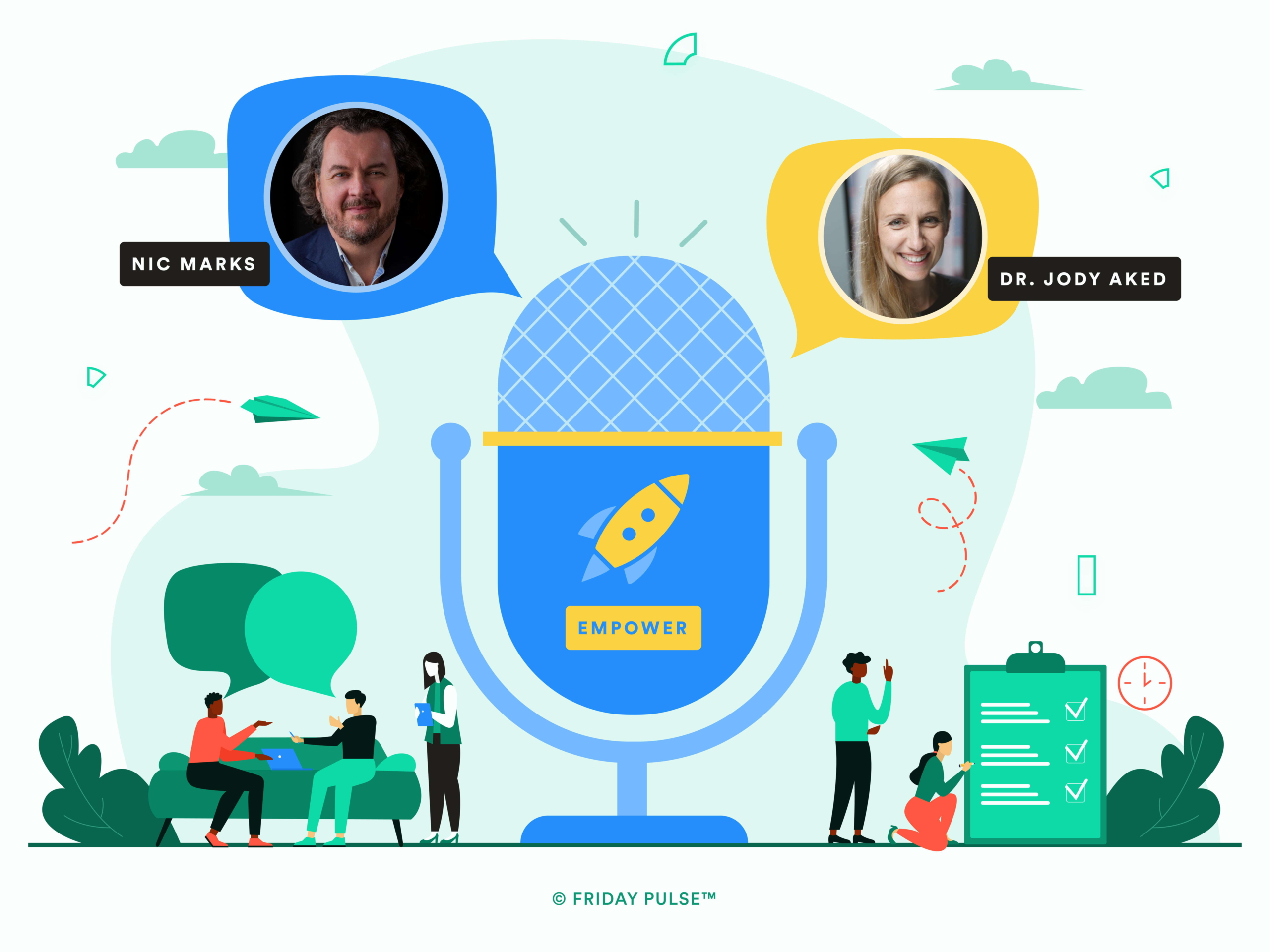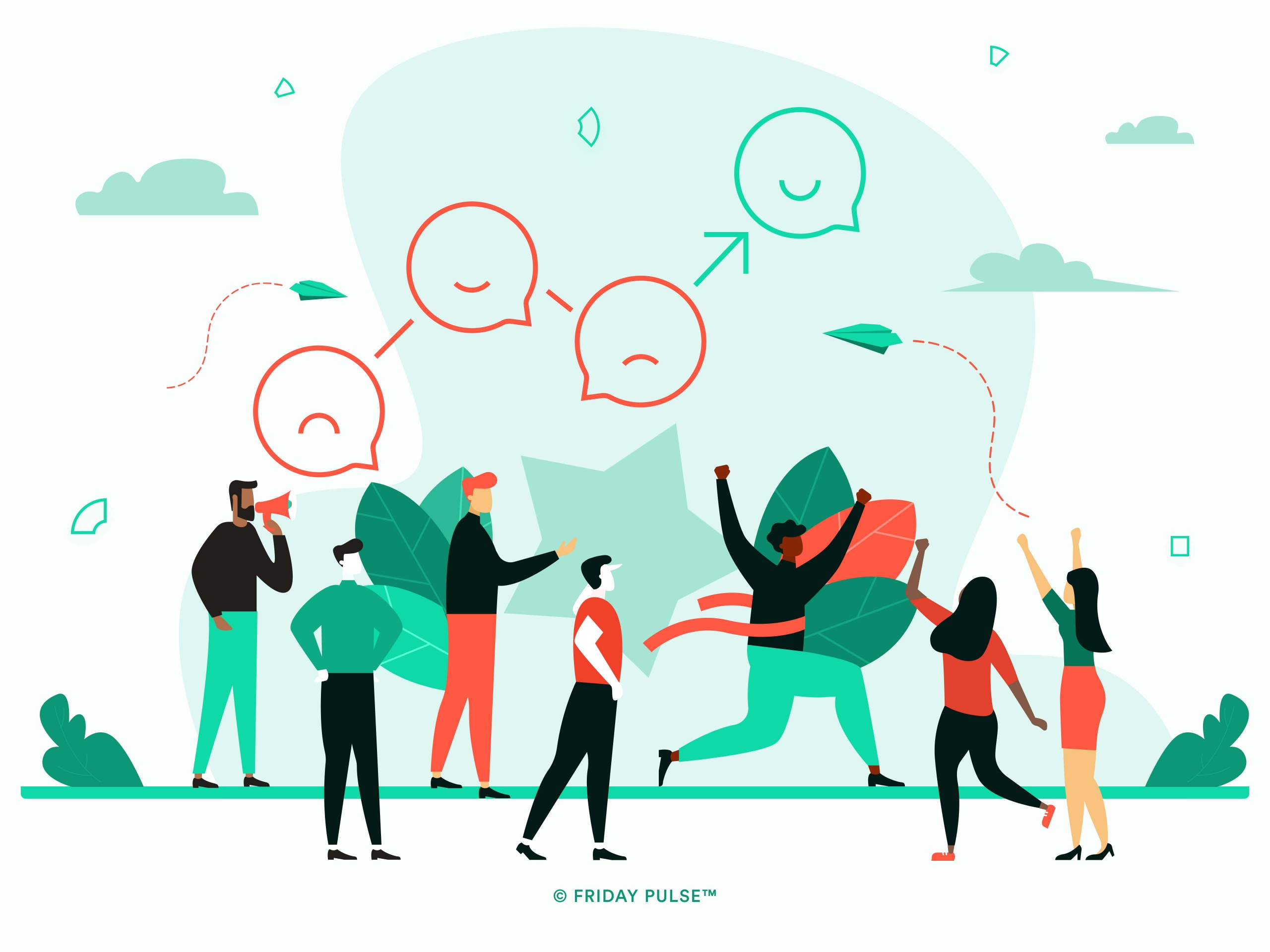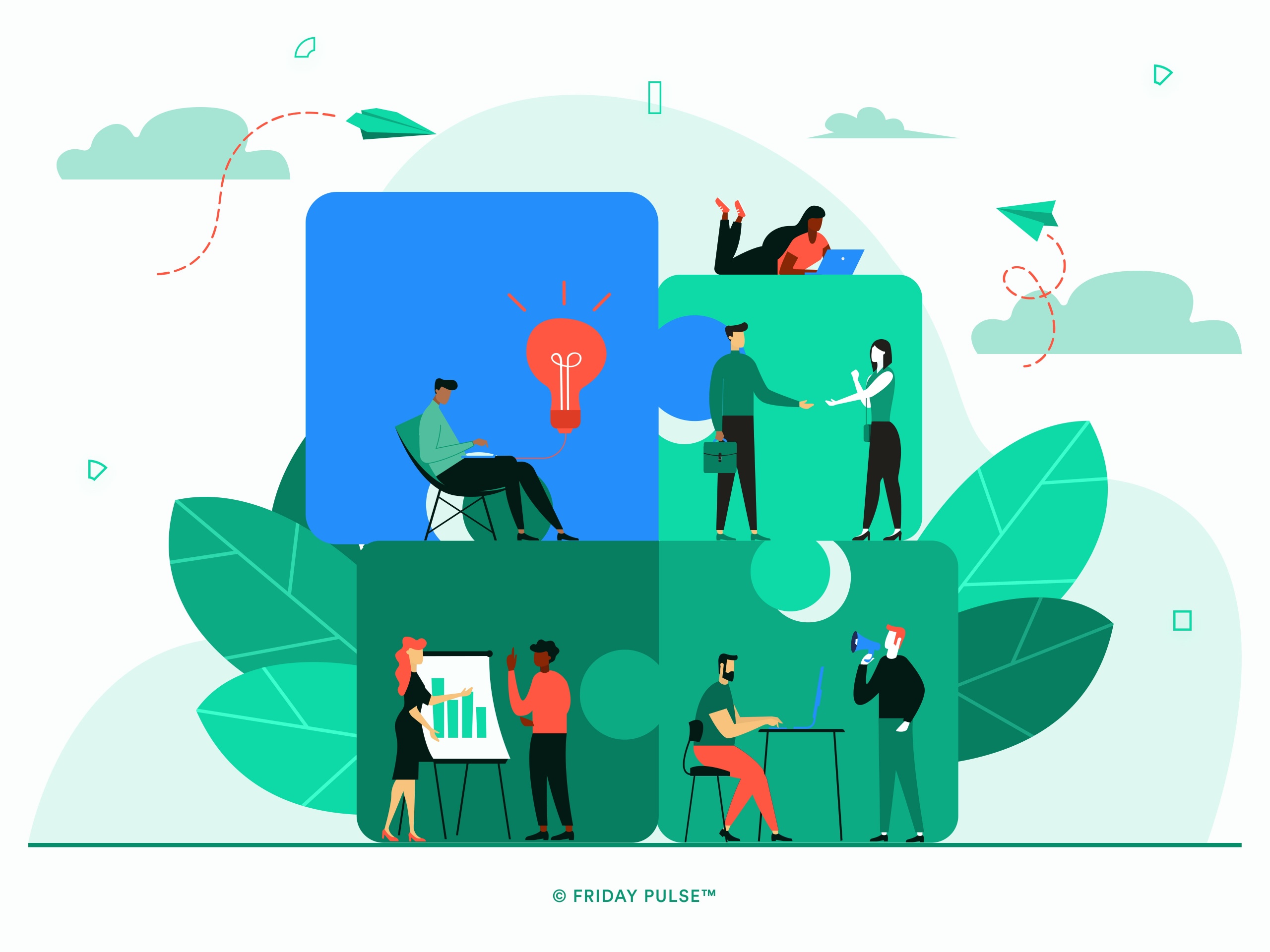Friday Pulse: Let’s start with the basics. What is empowerment
and how do you do it?
Nic:
Empowerment can\'t be delivered. It\'s something that is co-produced
between people when it emerges. It\'s subtle because it\'s about
delegation and trust.
Jody:
Definitely. We create the conditions to enable someone to work with
agency.
Is empowerment only for when there\'s a power hierarchy or can it
exist between peers?
Nic:
In most businesses there is a structure of power. Empowerment requires a
certain degree of self-awareness from the person higher up the
hierarchy, the manager or leader, and a certain amount of trust in their
people.
Obviously, the opposite of empowerment are things like micro-managing,
not delegating, ordering or telling people what to do. It\'s the
difference between being prescriptive vs. being facilitative where you
support and encourage people, being a catalyst to them.
Friday Pulse:
What does empowerment look like between peers?
Jody:
Our peers make a big difference. They\'re one of our immediate reference
groups. One aspect of empowerment is playing to our strengths, and
sometimes it\'s easier for you to recognize a person’s strength than it
is for them to recognize it themselves. So, rather than supporting each
other from a deficit-based perspective of looking at weaknesses, you can
amplify people\'s strengths and give them feedback about the things they
do well.
When we’re clear in ourselves about what we do well, we have the
confidence to take on new challenges and identify the things we want to
improve. This drive comes from within and this is real empowerment.
How does a business create opportunities for empowerment?
Jody:
Nic mentioned the word “trust”, and that\'s a big one in terms of
enabling. Trust is a precursor to empowerment, because you can\'t feel
empowered if you\'re being told what to do and how to do it.
But when a leader says, “You\'ve got this, you make good decisions. I
trust you to go do it, but I’m here if you need anything.” that changes
everything. It’s quite different to how a lot of people are managed.
It comes back to the hierarchy point, in that if you were a manager and
you don\'t feel trusted by the person who\'s managing you, you tend to
tighten your control as well. But if you\'re being supported to be
autonomous, you will be more open to encouraging that autonomy in your
direct reports.
Nic:
The late Tony Hsieh saw the role of the leader as a gardener rather than
trying to be the largest plant – tending to all the other plants and
helping them to grow.
If trust is a big part of empowerment, how do you cultivate trust?
Trusting your team and letting go can be a fundamental value change for
people.
Nic:
Trust is always earned. You can\'t demand it. And people trust you if
you\'re consistent. If you want to empower your team, you need
to consistently empower them. Empowerment doesn\'t mean there\'s no
management, or feedback, or that you can\'t critique or challenge
people. It means that you work with them rather than getting them to
work for you. It\'s a more collaborative approach.
Challenge and empower are linked statistically, as well as thematically.
They\'re the two closest together when we analyze the data. In this way,
it’s about helping people learn and grow in the role, giving them
feedback so that they can develop.
Jody:
I like Rachel Botsman on trust. She\'s done some good research and
debunks the idea that you build trust – you actually start with earning
it. She says trust is a feeling and defines it as a confident
relationship with the unknown.
How do you get to that point where you\'re willing to give your
trust, or to let go enough to let your people do things on their own?
Jody:
Recently, I’ve been talking a lot about maturity in leadership. I
interact with many organizations where leadership isn\'t as mature as it
could be. They\'ve inherited leadership models that are outdated or the
leaders have stepped into senior positions without being trained.
Ultimately, to trust others you have to trust yourself. And, we
underestimate how little confidence leaders have. Just because we see
them in these leadership roles, we think that they\'ve got it all sorted
and they know everything. Yet, internally the dialogue doesn\'t look
like that. They find it hard to trust because they don\'t actually trust
themselves.
Who\'s responsible for empowerment? Team leaders? C-Suite? HR?
Nic:
All of the above. But individuals must claim their own power.
Jody:
There\'s a lot spoken now around vulnerability, and courageous
leadership is to be vulnerable. Ideally, you’d want to say, \"I\'m
accountable for the decision I\'m making, but I trust myself because I
hired these people, or I built this team.\" But I think leaders don\'t
often feel equipped to step into that space. They\'re being told that
they\'ve got to make decisions and save the day.
We have a very interesting idea of leadership in society at large. We
individualize it rather than think about it as a collective endeavor or
an activity. It makes it difficult for leaders to step out of feeling
like they\'ve got control over everything. But those who do find that
trusting relationships are quite a relief, because they\'ve actually
hired some really good people and they don\'t actually need to worry
about all the little bits, all of the time.
So, everybody is responsible for empowerment initiatives?
Nic:
The top-down bit is about how you define your culture: are you an
organization that squeezes line managers to just get performance or
should it be results? Or are you a culture which seeks to nurture
talent? But the proof of empowerment is in the relationship at the local
level.
Jody:
Part of empowerment is emotional intelligence — knowing and
understanding my feelings and strengths. That\'s where I feel the Friday
Pulse tool helps teams because we\'re trying to build that emotional
literacy in the weekly conversations about the data. Getting to know
oneself in the workplace and investing in that really helps build
empowerment at the individual and team level.
Having conversations about what\'s going well, with an emphasis on
strengths in the tool, helps people build on what\'s working which, in
turn, creates greater agency.
One of the tenets of empowerment is the freedom to be yourself, but
is there a line of too much freedom to be yourself?
Nic:
Being yourself at work does not mean to say that you are the same self
that goes out on a Friday night or the same self that is a parent. We
have different personas that we slip into, we have different moods, we
have different ways of being, depending on the context that we\'re in.
Within the work context, it\'s about being able to bring your strengths
to work, your whole self to work, and that you are comfortable with the
persona that you are.
Jody:
Whether you are female or you\'re of an ethnic minority group, wherever
you\'re not the dominant group, it can feel like putting on that armor
or dressing yourselves as something different. It can be fatiguing after
a while. It comes down to whether you feel like you are playing a
version of yourself, a professional identity you are comfortable with,
and if it’s draining you.
Nic:
Your energy level is a real sign. If you feel drained, you\'re probably
not playing to your strengths, and you\'re probably having to perform a
role like an actor. If you feel energized, you\'re using your strengths
and you\'re more able to be yourself. It\'s the same with burnout. It
doesn\'t mean to say you\'re not going to be tired at the end of the day
work if you\'ve given an intense day of work, but we know the difference
between feeling tired and feeling drained.
Here\'s the thing, you can have too much empowerment. If you\'re a boss
and you don\'t give any guidance or support, you might think you\'re
being really free to your team, but actually they\'re going to feel
unsupported. On a scale of anarchy to total control, you don\'t want to
be halfway. You want to be two-thirds away from total control, one-third
to total freedom.
Jody:
Some of the best work I’ve seen for landing somewhere on the scale from
total freedom to total control is Jurgen Apelo’s. He suggests creating
domains of empowerment in organizations. Collectively you decide the
areas where people will act with total autonomy. For some thing’s
leadership will inform, and in others they’ll leave the decisions up to
the team leader. So, it\'s really clear to people how much influence
over decisions they have in different domains, and people quite like
that because they don\'t expect total autonomy all the time.
What kind of unexpected results of empowerment have you seen?
Jody:
If you get empowerment right, you get wisdom of the crowd. You\'ve got
everyone feeling like they\'re able to speak up, raise any concerns, get
on with the bits of the job they excel at. You have what I’ve called in
my research “network reciprocity” where people lean on each other for
support with issues they face. Odds are, there is someone in your group
that has some wisdom on how to deal with that issue. It may be an IT
solution or an idea for family issues, but someone in the crowd has the
wisdom.
That\'s what being yourself at work is: being able to bring your life
and your experience to the job.
Nic:
If you genuinely empower, you might be surprised where the solution
comes from in your organization. Someone will see something differently
and go, \"Why not this?\" And it may come right from the shop floor. You
have knowledge in the system. I often talk about how everybody in a
company is a sensor. They\'re sensing what\'s going on. When you have
empowerment, people will speak up and you have more information,
creativity and ideas.
Jody:
If you\'ve got people working together and they have that strong sense
of identity as a team and as the individual within that team, then
they\'re able to look at what the team\'s doing critically.
That\'s what I love about strengths-based approaches and the wisdom in
the crowd — if you get everyone understanding each other\'s strength,
they really understand that it\'s the collective of those strengths that
makes the team go.



